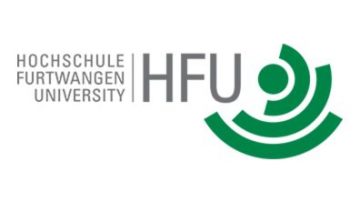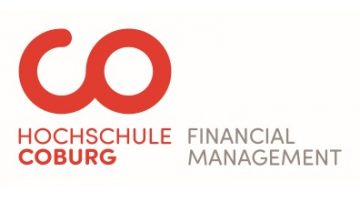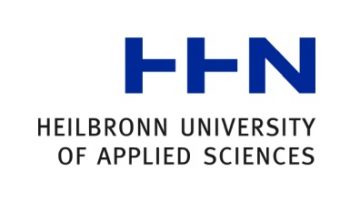Health Cluster Expert Session on Virology
The event took place within the scope of the COSIMENA Health Cluster, one out of the seven Clusters of Scientific Innovation in the Middle East and North Africa, which aim to foster cooperation and communication among researchers and academics in Germany and the MENA region.
Dr. Roman Luckscheiter, Director of the DAAD Cairo Office, introduced the session, stating that North-South dialogue is necessary to face the global challenges of viral infections. He added that while partnerships and cooperation among scientists of the Eastern Mediterranean region, the Middle East, and Europe do exist, there is a need for more networking and awareness among participants of different initiatives. Dr. Mahmoud Bahgat, Head of the Research Group Immune- and Bio-markers for Infection, National Research Centre (NRC), gave an overview over the state of viral infections in the region. According to WHO statistics, in 2017, twelve countries reported nine major outbreaks, causing at least 4600 deaths. Infections included Acute Watery Diarrhoea (AWD) in Sudan, Middle East Respiratory Syndrome (MERS) in Saudi Arabia, and chikungunya in Pakistan. Socio-political and economic factors play a part in the likelihood of epidemic viral infections, as fragile health systems and lack of security contribute to rapid outbreaks and inability of early detection and containment measures. In Yemen, approximately a million out of its 30 million citizens are suspected cases of cholera infection, due to a dysfunctional health system and lack of proper infrastructure and medical services.
The speakers stressed the importance of South-South dialogue, so that governments and scientists are aware of neighbouring threats and are capable of acting swiftly to assess and contain risks. Equally important is the South-North cooperation on emerging and neglected diseases, as globalisation makes it easy for vectors and infected hosts to cross borders, as any of these infected individuals is only one flight away from spreading the viruses elsewhere. While Germany is considered to be a safe place mostly free of viral outbreaks, it has to deal with imported diseases regularly. German tourists have, in the past, contracted diseases such as MERS and were not diagnosed till they returned home. On other occasions, major viral outbreaks, such as of Zika virus and Ebola, lead to heightened precautions and readiness for medical quarantine across the world. Hundreds of daily transcontinental flights, global refugee crises and tourism are among many other factors that make it imperative to steer researchers’ efforts towards studying less common viral outbreaks, as well as towards creating better infection surveillance measures and vector control programmes.
Climate change also poses an increasing threat of affecting the emergence and the distribution of outbreaks by changing the behaviour of infected carriers that are sensitive to temperature changes and by decreasing host resistance due to a warmer environment. Moreover, global changes in land use are characterised by rising proximity and interaction between humans and animals, elevating the risk of new infections as the human immune system is vulnerable to the new infections and can work as an amplifying host for the viruses. The possibilities of viruses in transferring from animals to humans are massive. Prof. Dr. Stephan Becker, Director of the Institute for Virology at the Philipps-Universität Marburg, pointed out that despite progress in viromics and genetic sequencing, efforts to predict which virus is more likely to infect humans next are still insufficient. Instead, researchers focus more on early rapid detection of unknown viruses, and this cannot happen effectively without international cooperation to monitor and contain possible outbreaks.
There is a wide range of neglected diseases that are not highly spread in Europe, such as Zoonotic Visceral Leishmaniasis (ZVL), anthroponotic leishmaniasis, Fascioliasis, foodborne helminth infections, and leprosy. This poses an opportunity for research partnerships to study and learn from the immunity of the population facing these infections, as well as to understand and analyse successful models of control. However, this is not an easy process, especially under the 2010 Nagoya Protocol on Access and Benefit Sharing, which was signed as a supplementary agreement to the 1992 Convention on Biological Diversity. The protocol aimed to reduce the knowledge gap between the Global North and the Global South through sharing research that involves genetic resources, but it created bureaucratic boundaries that made it more challenging to exchange pathogen samples across borders and transferring biological material. To address such a problem, there must be efforts to establish more regional centres for infection control and regional laboratories.
Prof. Becker provided an overview of a successful example of creative endeavours to overcome such hinderances, namely the establishment of the European Mobile Laboratory project in 2011. Designed in Germany, these labs included toolkits, test assays and detection equipment that could be stored within small boxes that weigh less than 15 kg. They can be easily shipped on commercial flights, then transported and deployed in remote areas that lack easy access to regional labs. Creating a practical design that is both functional and portable was not the only challenge, as it took time and effort from researchers to convince the European Union to fund a project that is related to remote areas.
The session concluded with a panel discussion moderated by Dr. Bahgat. The panel included the keynote speakers Prof. Becker and Dr. Mamunur Rahman Malik, responsible for Infectious Hazard Management at the Department of Communicable Diseases of the World Health Organization’s Regional Office for the Eastern Mediterranean, as well as four other experts on virology, Prof. Fatma Amer (Faculty of Medicine, Zagazig University), Prof. Ali Mohamed Zaki (Faculty of Medicine, Ain Shams University), Dr. Eshtiyag Abdalla Abdalkareem (Department of Immunology and Biotechnology, National Centre for Research in Sudan) and Dr. Thomas Strecker (Institute for Virology, Philipps-Universität Marburg). During the panel discussion, the experts agreed that both community engagement and surveillance detection systems are complementary for effective containment of viral outbreaks. Dr. Malik further explained that screenings and early detection lead to accurate assessment of the infections’ provenance, as well as successful identification of infection sources. To accomplish this, the population must be cooperative and understanding of the efforts. In the case of Sudan, for example, doctors and health officials had to communicate with traditional doctors and community leaders on several occasions to convince certain segments of the population to get tested or receive vaccinations. Educating the public on sanitary practices and health precautions is also very effective in containing infections. At the end of the discussion, the experts enumerated the essential steps towards tackling viral infections on a global level: strong reporting and screening infrastructures in countries facing outbreaks of emerging pathogens, effective and ongoing communication and awareness efforts with local communities, ongoing research on vaccinations for known viruses and a permanent readiness to face unexpected and new ones.
Report by Mr. Ahmed Ateyya





